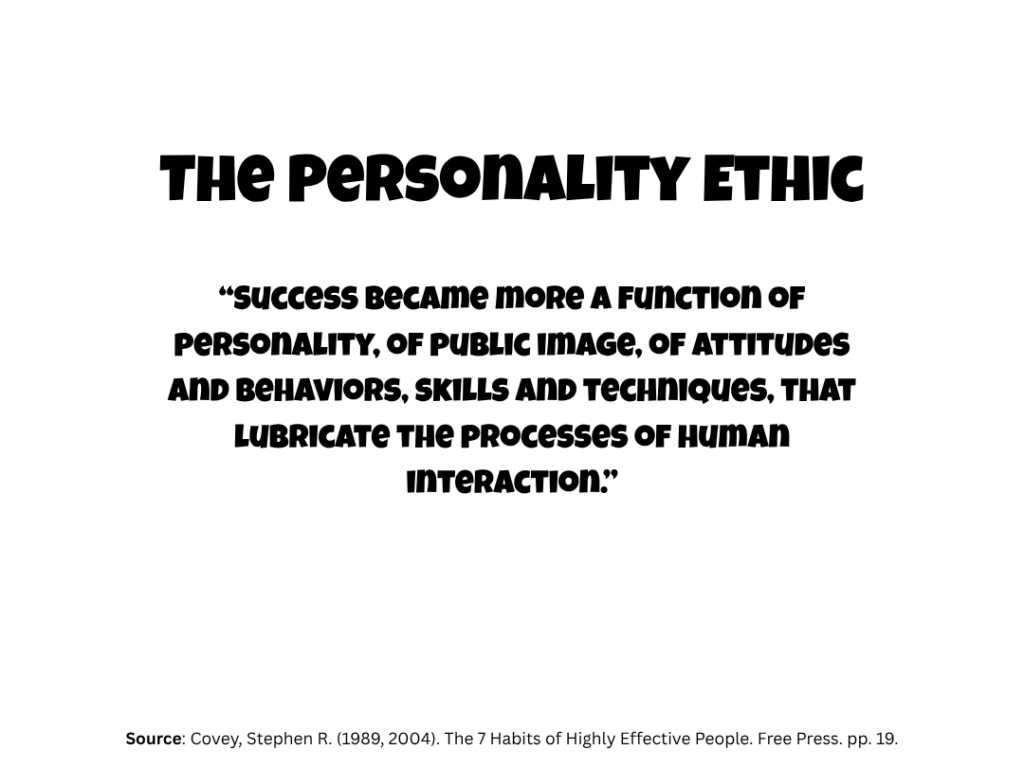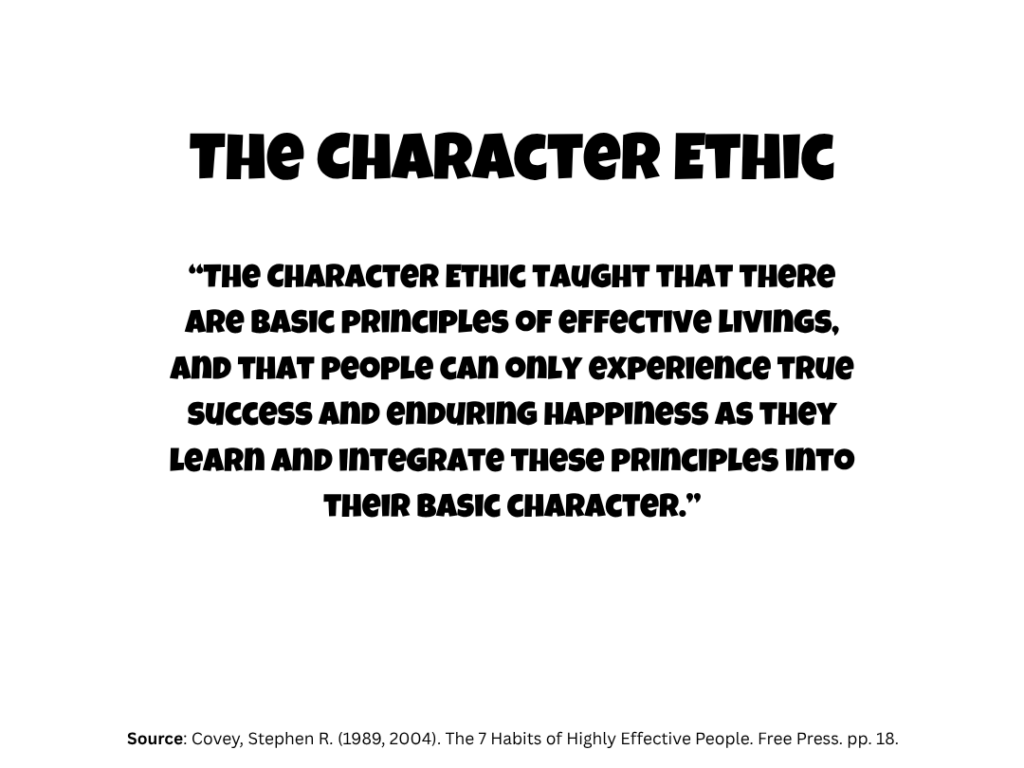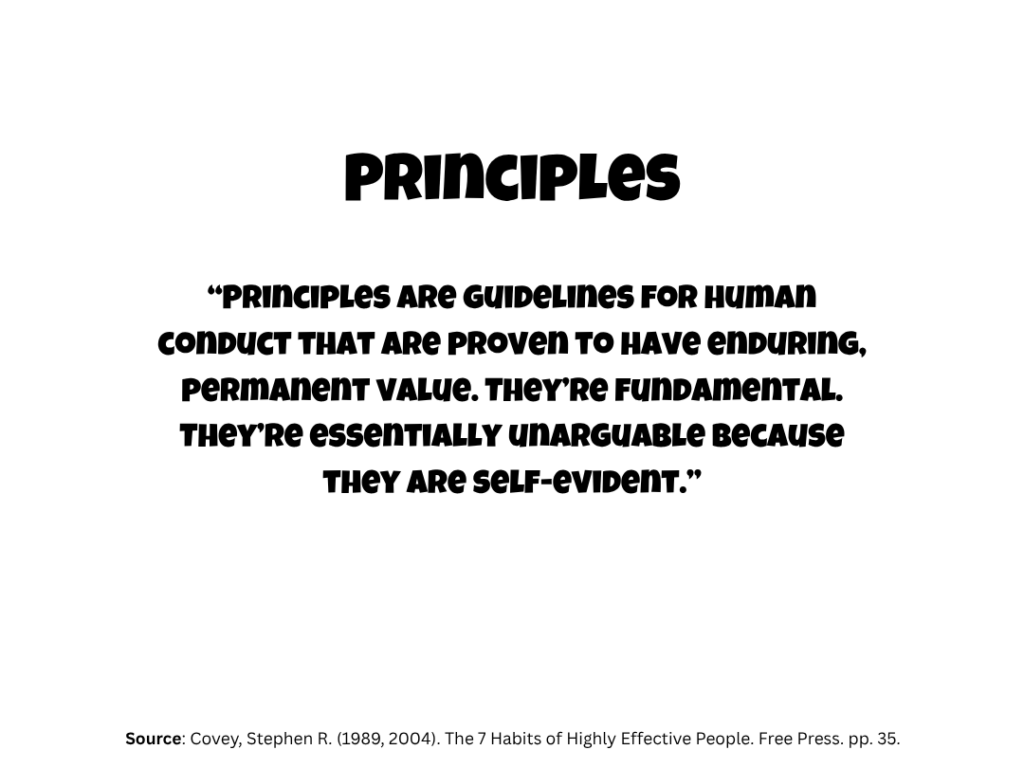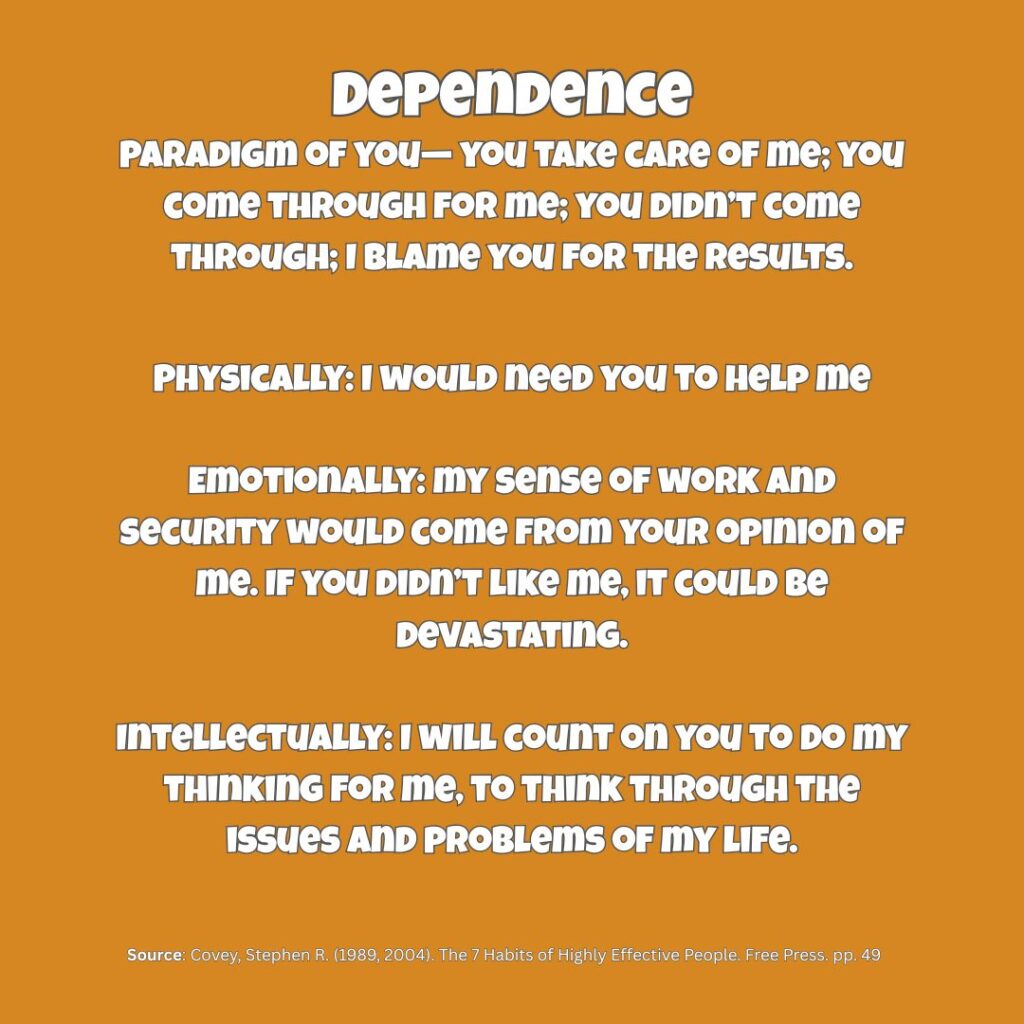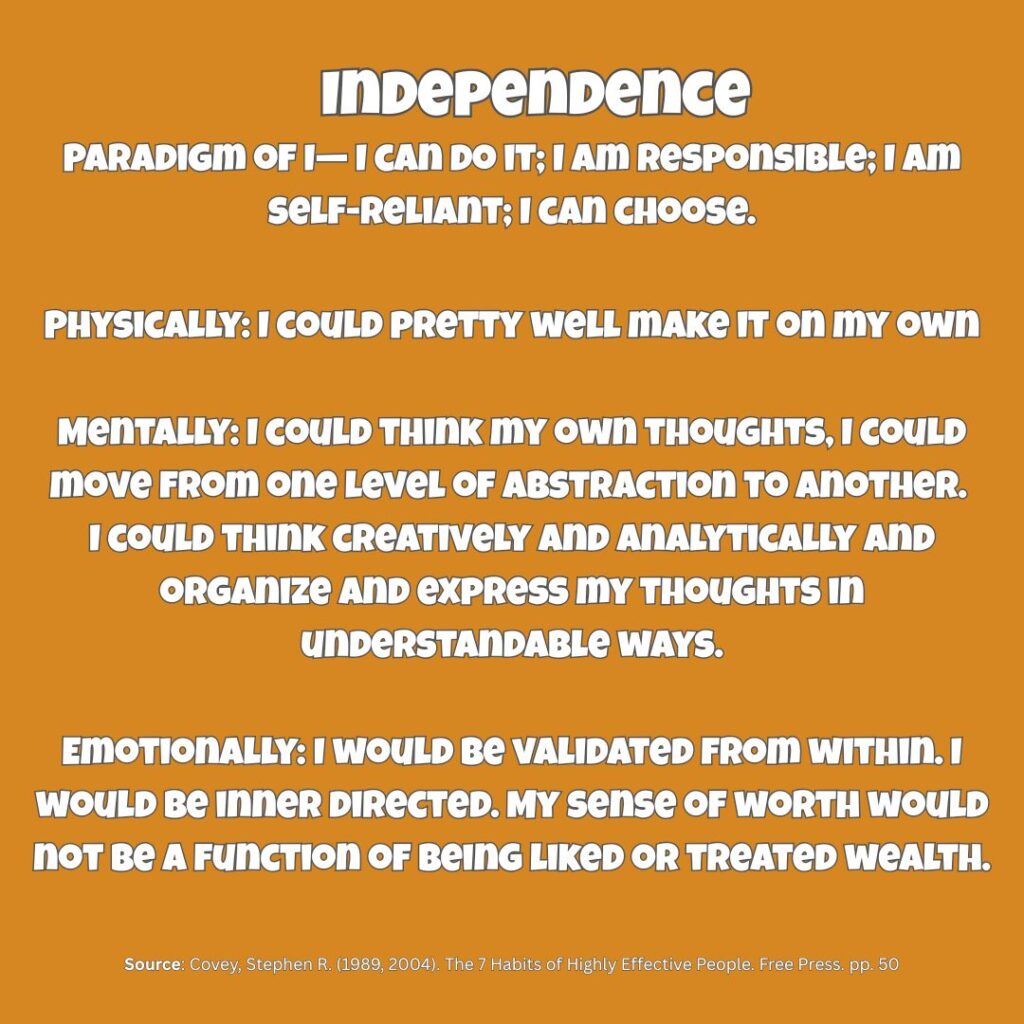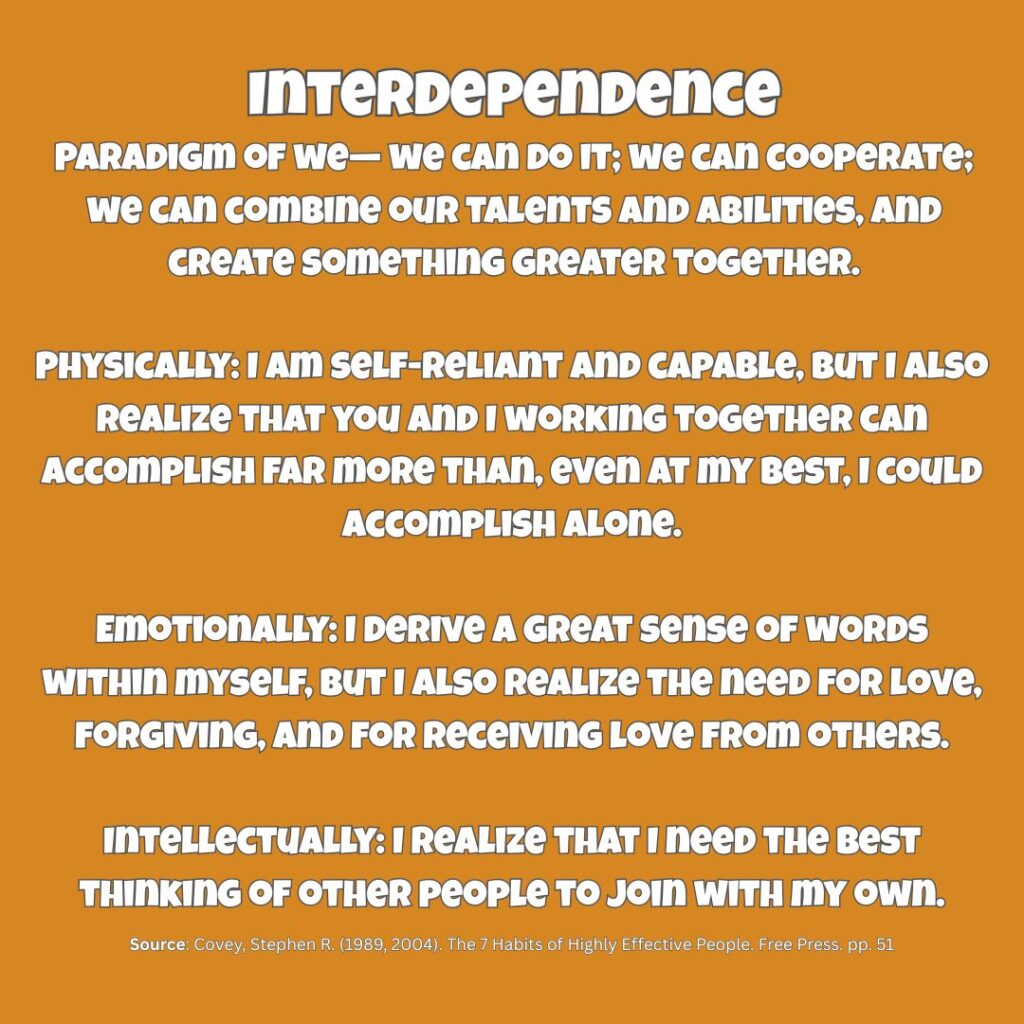Success became more a function of personality, of public image, of attitudes and behaviors, skills and techniques, that lubricate the processes of human interaction.
This Personality Ethic essentially took two paths: one was human and public relations techniques, and the other was positive mental attitude (PMA).
The basic flaws of the Personality Ethic: to try to change outward attitudes and behaviors does very little good in the long run if we fail to examine the basic paradigms from which those attitudes and behaviors flow.
“Where we stand depends on where we sit.”
We see the world, not as it is, but as we are – or, as we are conditioned to see it. When we open our mouths to describe what we see, we in effect describe ourselves, our perceptions, our paradigms.
Each of us has many, many maps in our head, which can be divided into two main categories: maps of the way things are, or realities, and maps of the way things should be, or values. We interpret everything we experience through these mental maps. We seldom question their accuracy; we’re usually even unaware that we have them. We simply assume that the way we see things is the way they really are or the way they should be.
And our attitudes and behaviors grow out of those assumptions. The way we see things is the source of the way we think and the way we act.
Clear-headed people see things differently, each looking through the unique lens of experience.
The more aware we are of our basic paradigms, maps, or assumptions, and the extent to which we have been influence by our experience, the more we can take responsibility for those paradigms, examine them, test them against reality, listen to others and be open to their perceptions, thereby getting a larger picture and a far more objective view.
Covey, Stephen R. (1989, 2004). The 7 Habits of Highly Effective People. Free Press. pp. 19, 24, 28, 29.
Following the personality ethic, external factors such as an individual’s public image, their attitudes and behaviors, their skills and titles are what determine an individual’s success.
A basic flaw with the personality ethic is changing our behavior and attitudes without considering the deeper cause of these behavior and attitudes.
How we see things, people and situations is influenced by our own perceptions. When we are describing something in a way, we are describing ourselves and how we see the world.
The way we see things affects how we think and act, and the more we can be open to examining the accuracy of how we see things the more we can take responsibility for how we see things, question our points of view, and adjust them according to reality. We can listen to others and be open to the way they see things in order to have an expanded view.

